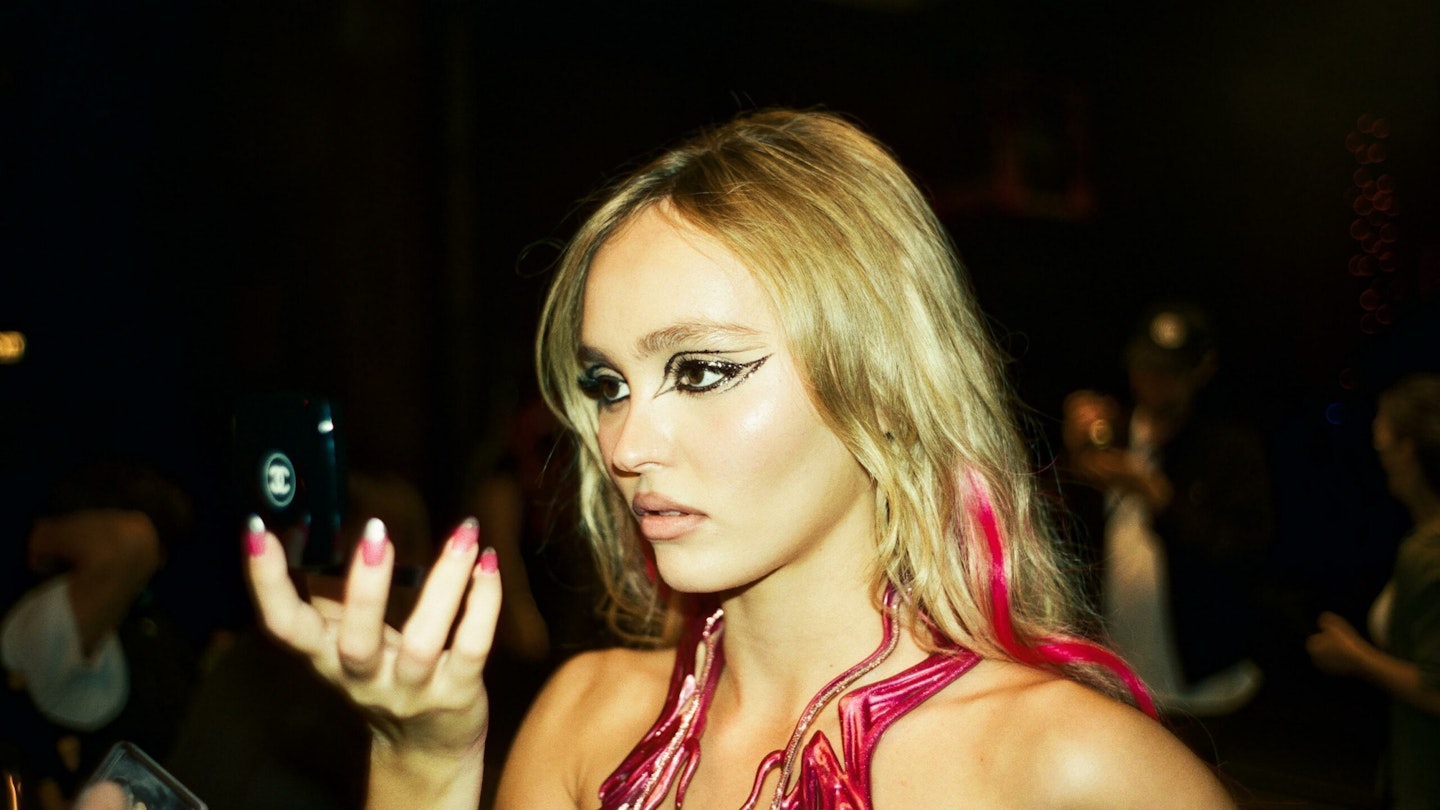Warning, spoilers about The Idol ending ahead
I hate to admit it because apparently it’s painfully uncool, but if I were a teenager watching The Idol I would’ve been hooked on it. Presumably that’s the intended audience given director Sam Levinson’s remarks that the show is set in the same universe as teen-smash Euphoria, it had all of the sex, style and sumptuous interiors that would’ve kept a 16-year-old me on tenterhooks. Then again, that probably wouldn’t have been for the best – because it's finale completely missed the mark when it comes to investigating the exploitation within Hollywood.
The Idol spends two episodes setting up Jocelyn (played by Lily Rose-Depp) as a vulnerable but talented young woman in Hollywood, who’s entire being is picked apart and sold by various music executives hoping to capitalise off her sex-appeal. A modern-day cult leader, Tedros (played by The Weeknd) preys upon her, and in episodes three and four begins to insidiously control her life and creative output.
The plot has the potential to make so many powerful points about the way women are manipulated, groomed, and exploited in Hollywood in order to make old and powerful people money. But alas, the gratuitous nudity and graphic sex scenes that Rolling Stone dubbed ‘torture porn’ only serve to prove the same point The Idol was apparently meant to expose.
Last night, the finale aired and its twist was suitably shocking. So shocking, in fact, that Google Trends data shows the search engine was flooded with the search phrases ‘The Idol ending explained’ and ‘Was Jocelyn lying about her mother's abuse and the hairbrush?’
The idol ending explained
It turns out that Jocelyn was the master manipulator all along, lying about her mother’s abuse in order to draw in Tedros and his band of talented followers. When Tedros was no longer useful, Jocelyn has her manager pay him to go away, taking his friends as her own musical discoveries and using them as her opening act on tour. In one scene, Tedros notices that the hairbrush Jocelyn said her mother used to hit her was actually brand new (apparently, we’re meant to believe he didn’t spot that when he was using it to pummel her in earlier scenes) and realises she lied about everything.
Frankly, the ending felt rushed and inconsistent with the plot. Are we meant to believe that Jocelyn’s naïve best friend Leia was in on it all along? That Xander accepted literal torture from Tedros in order to maintain Jocelyn’s lie? It’s perhaps making the point that Jocelyn was the cult leader all along, and viewers have pointed out that the opening scene of the pilot when Jocelyn is feigning different emotions for a photoshoot points to her being the actual villain of the tale.
But it left us wondering, what then was the point of all of it? If the show was meant to expose Hollywood’s dark underbelly of exploitation around women, all this does is imply young women in the music industry perhaps aren’t as vulnerable as they seem – that they’re actually all in on in the manipulation out of some vapid pursuit of fame and legacy. The emotional pay-off is ruined even further when, in the final twist, Jocelyn decides to take Tedros back – bringing him onstage during her opening night of her tour to introduce him as ‘the love of [her] life.’ So, is she the master manipulator after all, or was this Tedros long game? In her final line to Tedros, ‘You're mine ... forever. Now go stand over there’ it seems were meant to believe she now has him in his pocket, and thus that he was the real victim of manipulation after all.
With that one decision – to take Tedros back – any emotion you attached to Jocelyn finally regaining her life back, not letting this vile man control her any longer and stealing his friends for herself, is lost. Even if we’re meant to believe she’s in control of Tedros, he’s not a worthy enough prize to make this feel like a power move, more a depressing return toward a man who emotionally and physically abuses her. It was a shocking twist, sure, but it falls flat in serving any sort of point about the nature of grooming in Hollywood.
In an industry plagued by exploitation, the final twist of The Idol actually felt damaging to real life victims.
Now, Jocelyn is considered just as manipulative, and essentially active in her own grooming, as all of the men that make money off her talent. In an industry plagued by tragic and infamous stories of exploitation – from Britney Spears to Amanda Bynes – it actually felt damaging, to the real world, for this kind of narrative to be spread.
The reviews of The Idol all say the same, The Guardian giving it one star in a hilarious critique by Leila Latif that argues The Weeknd’s performance ‘should be tried at The Hague.’ The Telegraph bid ‘farewell to the worst show of the year’ and CNN warned ‘”The Idol” presented a cautionary tale, just not the one it intended to tell.’
All of this serves to prove that the behind-the-scenes chaos surrounding The Idol were largely true. Before The Idol aired, Rolling Stone reported that thirteen different sources told them the show lost its way after director Sam Levison abruptly announced that the creative direction for the show had changed, and all former work by writer-producer Amy Seimetz (The Girlfriend Experience) scrapped in favour of his vision. With all of the rewrites and reshoots, what could’ve been a feminist cult hit became something very different entirely – and the BTS chaos has taken its toll on the plot. Would I watch it all again if it returns for season two? My inner 16-year-old might want to, but even I feel a need to protect her from anymore of The Weeknd’s sex scenes.
